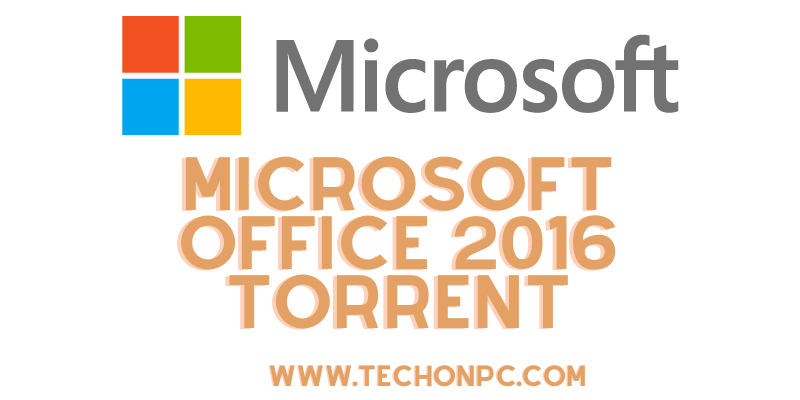Education
Why Does Your Business Need Managed SOC
Published
1 year agoon
By
techonpc
Business
Managed SOC (Security Operations Center) is a service provided by a Managed Security Service Provider (MSSP) that focuses on the proactive monitoring, management, and incident response of an organization’s security systems. A SOC typically includes a team of security experts who use advanced tools and technologies to monitor an organization’s networks, systems, and applications for security threats.
The SOC team is responsible for the following:
- Proactive monitoring of security events and alerts
- Correlating and analyzing data from multiple security systems
- Identifying and responding to security incidents
- Conducting investigations and forensics
- Providing real-time threat intelligence
- Providing regular reporting and compliance support
Managed SOC services can also include penetration testing, vulnerability assessments, and incident response planning.
A Managed SOC service can provide several benefits to an organization:
- 24/7 monitoring: A SOC team can monitor an organization’s security systems around the clock, which can help quickly detect and respond to security incidents.
- Advanced tools and expertise: SOC teams have access to advanced tools and technologies and the expertise to use them effectively.
- Cost savings: Outsourcing SOC services to an MSSP can be more cost-effective than building and maintaining an in-house SOC team.
- Compliance: SOC services can help organizations to comply with regulations such as the General Data Protection Regulation (GDPR) and the Health Insurance Portability and Accountability Act (HIPAA)
- Proactivity: SOC teams can provide proactive security measures such as threat intelligence and vulnerability management, which can help to prevent security breaches before they occur.
Your business needs a Managed SOC (Security Operations Center) service because it can provide a comprehensive and proactive approach to security and incident response. A SOC can help your business to:
- Detect and respond to security incidents quickly: A SOC team can monitor your business’s security systems around the clock, which can help quickly detect and respond to security incidents, minimizing the potential impact on your business.
- Proactively identify and mitigate threats: SOC teams have access to advanced tools and technologies and the expertise to use them effectively, which can help them identify and mitigate threats before they can cause damage to your business.
- Meet compliance requirements: SOC services can help your business to comply with regulations such as the General Data Protection Regulation (GDPR) and the Health Insurance Portability and Accountability Act (HIPAA)
- Cost savings: Outsourcing SOC services to an MSSP can be more cost-effective than building and maintaining an in-house SOC team.
- Proactivity: SOC teams can provide proactive security measures such as threat intelligence and vulnerability management, which can help to prevent security breaches before they occur.
- Continuous improvement: With the help of the SOC team, you can continuously monitor, analyze and improve your security posture.
In short, a Managed SOC service can provide your business with the protection it needs to stay secure and operational in the face of cyber threats and incident management.
How does Managed SOC work?
Managed SOC (Security Operations Center) services typically work by providing a team of security experts who use advanced tools and technologies to monitor an organization’s networks, systems, and applications for security threats. The process typically includes the following steps:
- Data collection: The SOC team uses various security tools and technologies to collect data from an organization’s networks, systems, and applications. This can include data from firewalls, intrusion detection systems, security information and event management (SIEM) systems, and other security devices.
- Data analysis: The SOC team analyzes the data collected from the security tools and technologies to identify patterns and anomalies that may indicate a security threat.
- Incident detection: When the SOC team detects a potential security incident, they will begin an investigation to determine the incident’s nature and scope and identify the cause.
- Incident response: Once the incident has been identified and confirmed, the SOC team will initiate an incident response plan to contain, eradicate, and recover. This can include shutting down affected systems, isolating affected networks, and restoring normal operations.
- Reporting and compliance: The SOC team will provide regular reporting on the status of security incidents and the organization’s overall security posture. They will also help the organization comply with regulations such as the General Data Protection Regulation (GDPR) and the Health Insurance Portability and Accountability Act (HIPAA).
- Continuous monitoring and improvement: The SOC team will monitor and analyze the organization’s security posture and make recommendations.
Factors to consider when investing in Managed SOC work
When investing in a Managed SOC (Security Operations Center) service, there are several factors to consider to ensure that the service meets the specific needs of your organization:
- Service level agreement (SLA): Make sure to understand the level of service you can expect from the MSSP, including the response times for alerts and incidents, the types of incidents that are covered, and the availability of the SOC team.
- Scalability: Consider the scalability of the service and whether it can accommodate your organization’s changing security needs over time.
- Customization: Some MSSPs offer customizable SOC services, which can be tailored to your organization’s specific needs. This is especially important if your organization has specific compliance requirements or regulatory standards.
- Integration: Consider the MSSP’s ability to integrate with your existing security systems and infrastructure to provide a seamless security solution.
- Reporting and compliance: Ensure that the MSSP provides regular reporting on the status of security incidents and the overall security posture of your organization, as well as compliance support.
- Experience and reputation: Investigate the MSSP’s expertise, reputation, and track record of successfully managing SOC for other clients.
- Cost: Compare the prices of different MSSPs and consider the service’s value compared to the cost.
- Data retention and privacy: Consider the MSSP’s data retention policies, how they handle and store your data, and their compliance with relevant data privacy regulations.
By carefully evaluating these factors, you can ensure that your organization selects a Managed SOC service that is the right fit for your specific needs and provides the best protection for your organization.
Wrapping Up
Overall, a Managed SOC service can provide organizations with a comprehensive and proactive approach to security and incident response, allowing them to focus on their core business activities while ensuring that their networks and data are protected from cyber threats.
Follow Me

Unleashing the Power of the Office Accelerator: Maximizing Productivity and Efficiency in the Workplace with Office 365 Accelerator

Unlocking the Hidden Potential of Your Website: Strategies for Growth

From AI to VR: How Cutting-Edge Tech Is Reshaping Personal Injury Law in Chicago
Trending

 Microsoft4 years ago
Microsoft4 years agoMicrosoft Office 2016 Torrent With Product Keys (Free Download)

 Torrent4 years ago
Torrent4 years agoLes 15 Meilleurs Sites De Téléchargement Direct De Films 2020

 Money4 years ago
Money4 years ago25 Ways To Make Money Online

 Torrent4 years ago
Torrent4 years agoFL Studio 12 Crack Télécharger la version complète fissurée 2020

 Education3 years ago
Education3 years agoSignificado Dos Emojis Usado no WhatsApp

 Technology4 years ago
Technology4 years agoAvantages d’acheter FL Studio 12

 Technology4 years ago
Technology4 years agoDESKRIPSI DAN MANFAAT KURSUS PELATIHAN COREL DRAW

 Education3 years ago
Education3 years agoBest Steph Curry NBA 2K21 Build – How To Make Attribute, Badges and Animation On Steph Curry Build 2K21

You must be logged in to post a comment Login